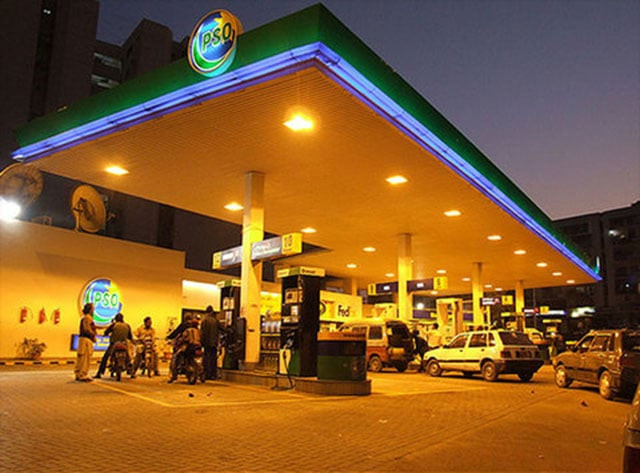PSO’s receivables surge to all-time high of Rs742.3b
Claims Rs6.7 billion in losses against SNGPL for the supply of LNG

Pakistan State Oil (PSO) is facing a financial crisis amidst the ongoing freefall of the Pakistani rupee against the US dollar. The company has booked claims of Rs6.7 billion against gas Utility-Sui Northern Gas Pipeline Limited (SNGPL) for the supply of Liquefied Natural Gas (LNG). PSO had entered the LNG business during the tenure of the previous government in 2015, which led to financial difficulties as the company struggled to receive multibillion rupees against its supplies.
The government’s use of expensive LNG in domestic sectors during the winter season to overcome gas crises, and the provision of subsidised LNG to five export-oriented sectors, including textiles, have put government companies on the brink of financial collapse.
The fertiliser sector has also been utilising subsidised gas, despite the substantial growth shown by the textile sector. However, textile sectors and ginning factories have added to the woes of farmers as they have been reluctant to buy cotton. With the cotton sowing season underway, farmers are still waiting for buyers to sell their previous crop. SNGPL has been unable to receive bills for LNG supplies to domestic sectors and cannot pay the bills of LNG supplied by PSO. Currently, PSO’s receivables have surged to an all-time high of Rs742.3 billion, with SNGPL being the largest defaulter to pay Rs464 billion for receiving LNG.
PSO imports LNG from Qatar and supplies it to SNGPL for onward distribution to customers. However, due to the speedy variation in the exchange rate during imports of LNG, PSO has suffered a loss of Rs6.75 billion against SNGPL. The receivables against customers continue to rise and pose a serious threat to oil and gas supply. PSO also supplies oil to different clients across the country and provides LNG for a public gas utility. However, circular debt has emerged in the supply of imported LNG, contributing Rs464 billion to the debt.
Of the total receivables, PSO has to receive Rs178 billion from the power sector on account of oil supply for electricity generation. Generation companies are the major defaulters who have to pay Rs147.6 billion, with Hubco owing Rs25.3 billion and Kapco owing Rs5 billion.
During the PTI government’s tenure, a bill was passed to introduce the weighted average cost of gas, which is the average price of imported LNG and locally produced natural gas, to curtail circular debt in the gas sector. Earlier, there was no legal framework for recovering LNG prices from domestic consumers, leading to the piling up of receivables.
However, the weighted average gas bill was challenged in the Sindh high court, and even the PPP had announced its intention to become a party in it. Due to the lack of a legal framework, domestic consumers have not paid their LNG bills, leading to the failure of SNGPL to pay bills to PSO. Pakistan International Airlines (PIA) is another major defaulter as PSO supplies jet fuel to the airline for running its operations. PIA has to pay Rs25.7 billion to PSO.
The state-run oil marketing company is also due to receive Rs8.93 billion from the government on account of price differential claims. On the other hand, PSO has to pay Rs88 billion to oil refineries for fuel supply. It owes Rs52.9 billion to the Pak-Arab Refinery Company, Rs12 billion to Pakistan Refinery Limited, Rs3.2 billion to National Refinery Limited, Rs16.3 billion to Attock Refinery Limited, and Rs2.6 million to Enar. It has to pay Rs 228 billion to retire letters of credit, standby letter of credits (SBLC) and Kuwait Petroleum Corporation for LNG payments.
Published in The Express Tribune, April 5th, 2023.
Like Business on Facebook, follow @TribuneBiz on Twitter to stay informed and join in the conversation.



















COMMENTS
Comments are moderated and generally will be posted if they are on-topic and not abusive.
For more information, please see our Comments FAQ